QuestionI have a male, neutered German Shepherd (Cody)that will be 2 years old in July. He is very sensitive to what he eats so I only feed him Royal Canin MAXI German Shepherd Formula or real chicken and rice if he has been sick. He loves his treats--ice cubes. I started him out in the house and walked him at least once a day. He seems to have anxiety so bad that I could no longer keep him inside the house even in a wire crate. (He chewed through it.) If I left the house I had to leave on relaxing instrumental music for him so he would not have loose stools in the crate. I should mention he had no issues with his crate. He happily entered it on his own and often laid in it voluntarily. It seemed like his "safe place" by the way he acted. Last summer I began keeping him outside. He loves being in his large outdoor kennel and does very well in it for the most part. My boyfriend and I live together and both equally take care of Cody. If I am away and not able to see Cody every night before bed Cody gets "sick." He will have loose stools until he sees me. I would prefer not to prescribe Cody with with anything if there is another way to help him. If I am not able to see him every night do you have any suggestions on how I can help the anxiety? He shares the kennel with a female spayed black lab whom he gets along with very well. The dogs are exercised several times a day and walked.
AnswerThe key to most behavior problems is approaching things using the dog's natural instincts. Dogs see all the people and dogs in the household as a pack with each having their own rank in the pack and a top dog. Life is much easier if the 2 legged pack members outrank the 4 legged ones. You can learn to play the role of top dog by reading some books or going to a good obedience class. A good obedience class or book is about you being top dog, not about rewarding standard commands with a treat. Start at http://www.dogsbestfriend.com/ For more on being top dog, see http://www.dogbreedinfo.com./topdogrules.htm
You won't be able to do some of this meant for puppies.
''Elevation for small puppies: Sit on the floor and gently put your hands around your pup's middle, below his front legs, and lift him up. He is facing you. Hold him for 15 seconds. Repeat until he no longer struggles. If he is past 10-12 weeks, lift his front feet off the ground, but don't pick him up.
Cradling for small puppies: Hold your puppy gently on his back, as you would cradle a small baby. If he struggles, hold him firmly until he quiets for 10-15 seconds. With larger pups, you can do this as your sit on the floor, with your pup between your legs.
Quiet lying down: Place your pup on the floor on his side, with all 4 legs pointing away from you. Use your hands on his neck/shoulder area and middle, to hold him in this position. When he is quiet, praise him. Lengthen the time that you keep him quietly in this position. When he accepts this position well, handle his paws and muzzle, while keeping him quiet.''
The quotes mean this isn't my original work. It is copied from my Puppy Raising Manual. I have long used these or minor variations of them, and they are very effective. You may want to give him a belly rub while he is on his back too. Helps bonding. There is a big difference between him rolling over and demanding a belly rub, and you choosing a time to roll him over and rub his belly. The latter cements your place as pack leader.
I think he is using the bowel movements to control you. Once he understands you are in control, he may accept being left alone. If this doesn't work, you may have little other choice than talking to the vet about a prescription.

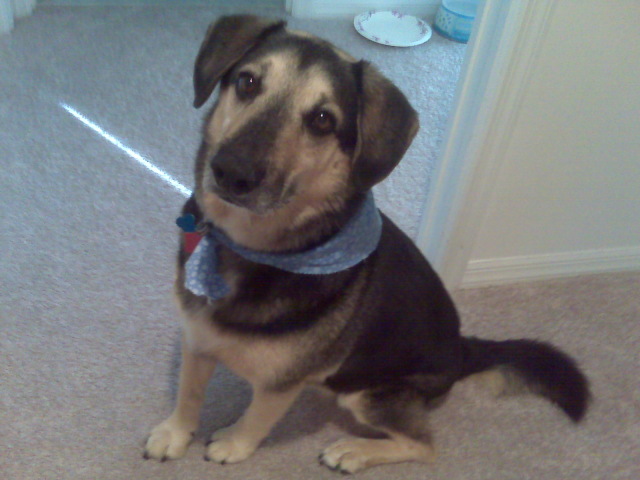 German Shepherd Mix Food
Question
Harley
Hello,
I have a 6 1/2 year old German S
German Shepherd Mix Food
Question
Harley
Hello,
I have a 6 1/2 year old German S
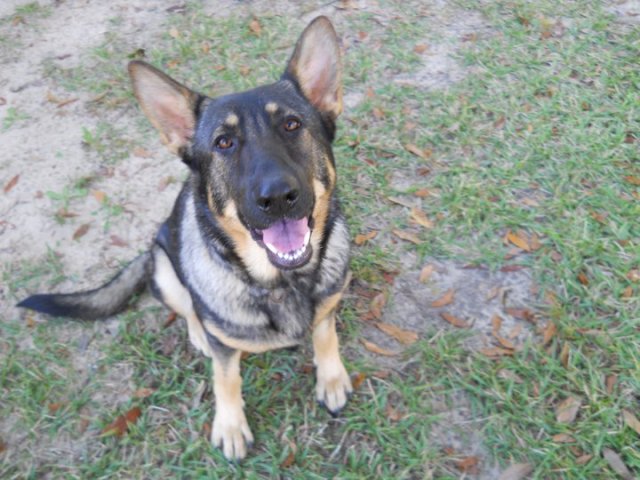 Training rescued German Shepherd
Question
Libby
My boyfriend and I have recently took in
Training rescued German Shepherd
Question
Libby
My boyfriend and I have recently took in
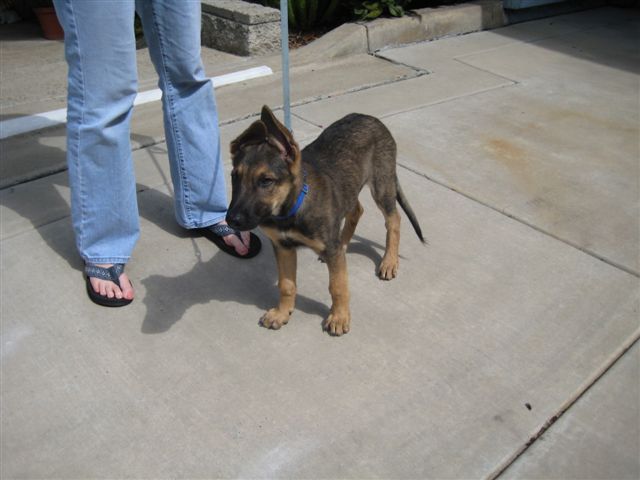 3 month old German Shepherd ears.
QuestionQUESTION: Hello and thank you for you time. I a
3 month old German Shepherd ears.
QuestionQUESTION: Hello and thank you for you time. I a
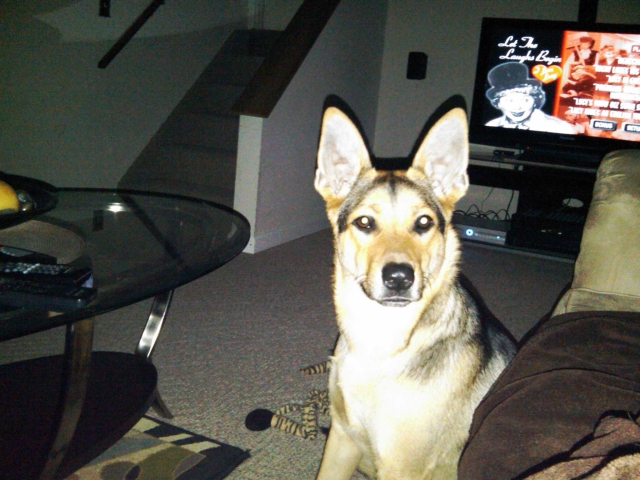 My German Shepherd Acts Scared
Question
Mannie
I have a male 1/2 German Shepherd 1/2 H
My German Shepherd Acts Scared
Question
Mannie
I have a male 1/2 German Shepherd 1/2 H
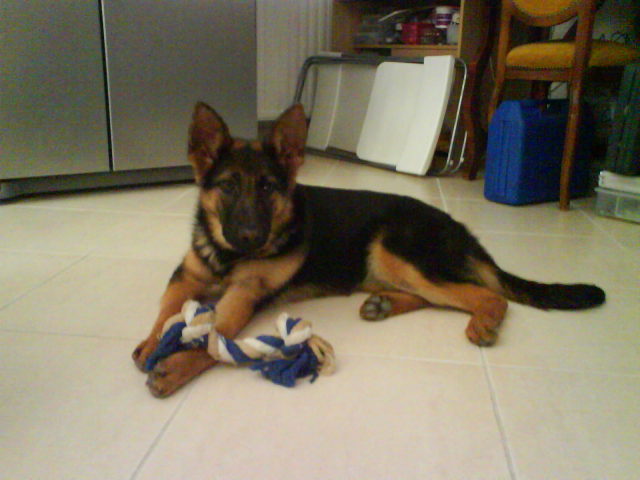 poor growth because bad nutrition
Question
7 month
I bought a female gsd when she was 7 m
poor growth because bad nutrition
Question
7 month
I bought a female gsd when she was 7 m